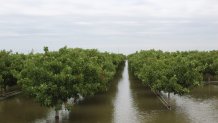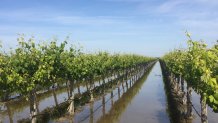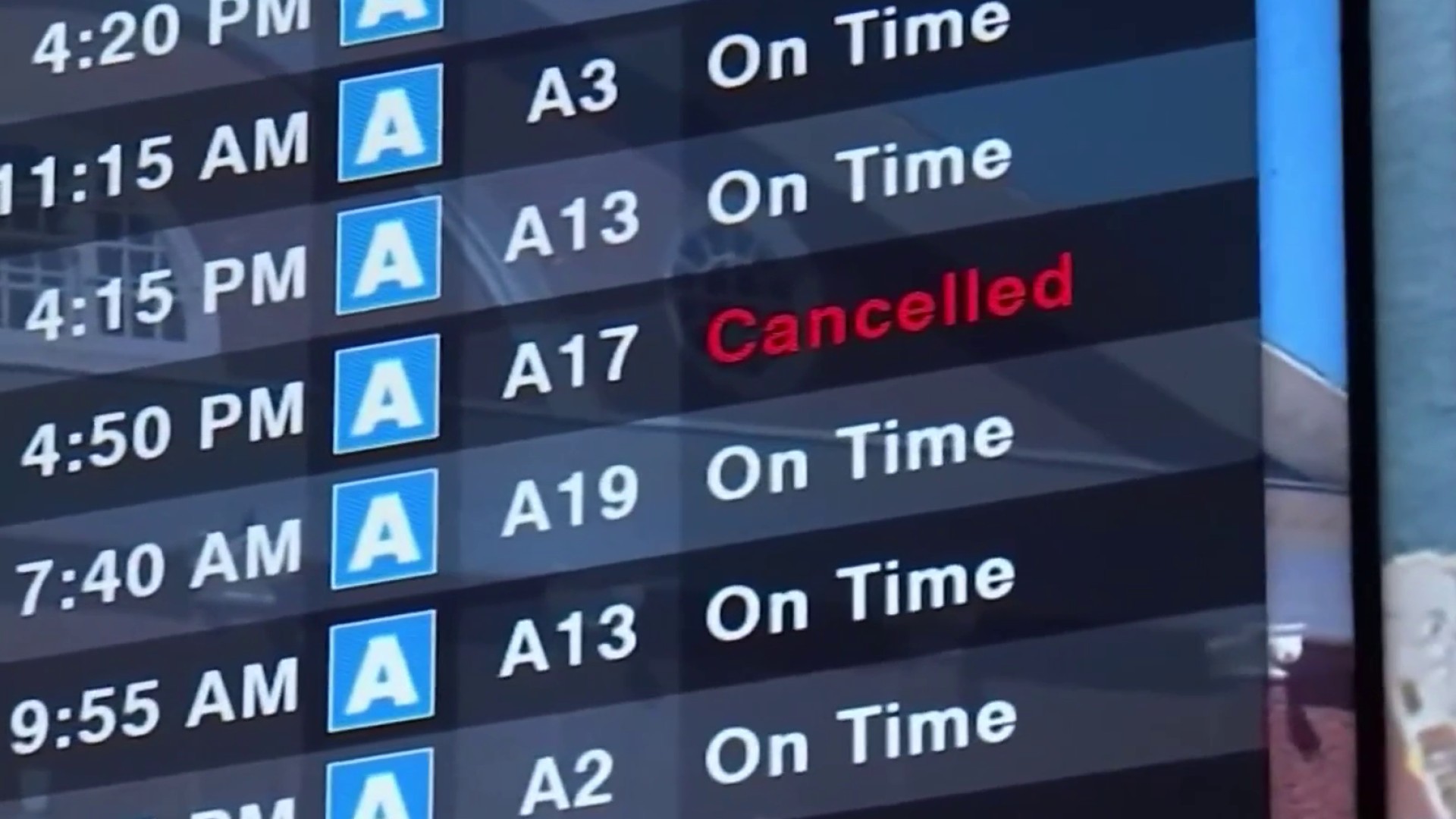A Central Valley farmer, whose bold experiment of flooding his vineyards and orchards with floodwaters in order to replenish the underground aquifer, has led other farmers in the drought-ravaged region to follow suit.
In 2011 Don Cameron -- who for 40 years has run Terranova Ranch in Helm near Fresno -- decided to re-route the year's overflowing bounty of rain from the King's River to his wine grape vineyard, allowing the vines to stand in more than a foot of water for five months.
His notion was that rather than allow the occasional floodwater to flow past farmlands during the crops' off-season, he could pump the water onto his vineyard to protect against flood and at the same time re-feed the diminishing water table. Predictably, the reaction from his fellow farmers wasn't enthusiasm.
"Initially the other farmers in the area thought we were crazy," Cameron said leaning over a rail where the North Fork end of the King's River is currently bone dry. "They thought we were going to kill our vineyard."

But Cameron's hunch paid off. The vines didn't die, and the standing water seeped down through the sandy soil and into the underground aquifer, helping to raise the water table some 40 feet. Since then Cameron has pumped flood waters -- which come roughly every few years -- onto his olive and pistachio trees as well as his almond orchards.
"We started with a flood capture project that was to prevent flooding," Cameron said, "and we turned this into a groundwater recharge project to replenish the aquifers so we can continue to farm throughout the region here."
Local
For decades, Valley farmers have increasingly experienced the twin calamities of climate change -- flood and drought, with little in between. Cameron has watched the riverbed winding through Terranova sit parched and dry through years of drought -- only to flood in the occasional wet years.
The farm sits in a region where farmers rely solely on underground water to feed their crops. Across the valley, the incessant pumping of ground water to satiate crops in the farm belt has caused the ground to sink -- an issue known as subsidence -- in some places up to 20 feet. To protect against further damage and to offer potential solutions, the State of California in 2014 passed the Sustainable Groundwater Management Act. Cameron's farm has become one of the models for the program -- even garnering a personal visit from Governor Gavin Newsom.
Get a weekly recap of the latest San Francisco Bay Area housing news. Sign up for NBC Bay Area’s Housing Deconstructed newsletter.

"His farm is often used as a demonstration site of how all this could be done," said Dr. Helen Dahlke, a hydrology science professor at U.C. Davis who has worked with Cameron. "I think a lot of farmers are now following his example and are in the process of implementing their own recharge projects."
But rather than gloat over his success and vindication, Cameron is taking his strategy to the next level. The farm dug a deep canal with a large pump to capture and re-direct water during the next flood event. The next phase of the project will install three more pumps and thirteen miles of canals to carry the floodwaters to neighboring farmers -- feeding the aquifer of some thirty-thousand acres.
"We can put over two-million acre feet of water into the ground to store for use later," Cameron said.
Some water experts in the state now call Cameron the "grandfather of groundwater recharge," a nickname he laughs off, but at the same time seems proud of. He admits groundwater recharge is not a fix-all for California, though it may help in some areas.
But the biggest hitch with his project is that before he can flip the switch on his pumps, nature must first flip the switch on heavy rains. And if there is one thing Cameron has come to expect, it's that you can't expect anything when it comes to farming.
"The last 10 years we had three years of flooding, and seven years of drought," he said. "I don’t think there’s such a thing as a normal year anymore, we haven’t seen it."



